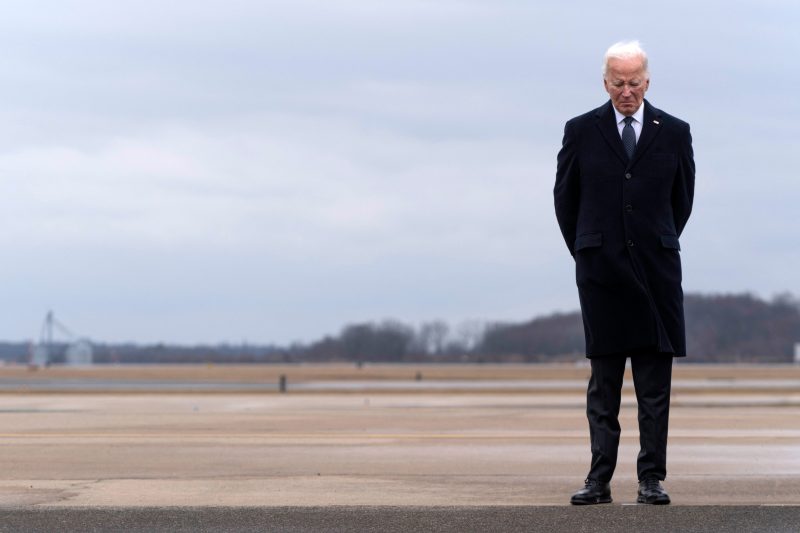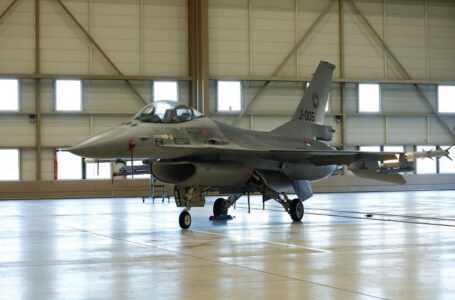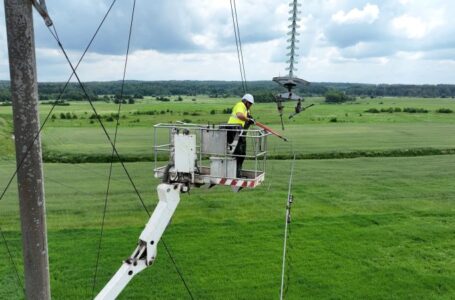U.S. launches retaliatory strikes after deadly attack on Jordan base


U.S. forces launched a broad attack against Iran’s military and affiliated militias in Iraq and Syria on Friday, delivering a blow to armed groups that Washington has blamed for killing American troops in Jordan and a toxic surge of violence across the Middle East.
U.S. Central Command said that American forces, using long-range bombers flown from the United States and other aircraft, hit more than 85 targets affiliated with the Quds Force, a powerful unit of Islamic Revolutionary Guard Corps’ (IRGC), and local militias it supports. Among them were command centers, intelligence sites and drone storage sites.
The operation appeared to mark the opening of what officials have said would be a multiday campaign aimed at various targets close to Iran, which the Biden administration has blamed for spiraling bloodshed following the start of Israel’s war in the Gaza Strip, including a drone attack Sunday that killed three U.S. service members and injured dozens more at a remote outpost in Jordan.
“Our response began today. It will continue at times and places of our choosing,” President Biden, who oversaw the repatriation of the slain soldiers’ remains earlier on Friday, said in a statement. “Let all those who might seek to do us harm know this: If you harm an American, we will respond.”
The Biden administration has labeled Tehran responsible for a steady drumbeat of attacks in Iraq and Syria, where U.S. troops remain as part of a mission to prevent a resurgence of the Islamic State, and in Yemen, where Houthi militants have fired on ships off the Arabian peninsula, because it has long funded and armed those groups.
The strikes, which began at 4 p.m. Washington time on Friday, are an attempt to inflict greater damage on Iran and its proxies than they suffered in previous retaliatory actions carried out by U.S. forces in recent months, which thus far have failed to end the violence.
The Islamic Resistance in Iraq, an umbrella group that includes several militias affiliated with Iran, claimed responsibility for the attack on Tower 22, the American base close to Jordan’s shared border with Iraq and Syria. The slain troops, two women and a man, were part of an Army Reserve unit based in Georgia.
On Friday, Syria’s state-run media reported that “U.S. aggression” resulted in fatalities and injures in multiple sites in desert areas, according to Reuters. State TV released images of explosions it said occurred in Iraq and Syria. American officials did not provide immediate information about casualties or what destruction the strikes had caused.
A provincial official from western Iraq said that multiple houses that were used by militiamen as weapons depots in al-Qaim, a city along the border with Syria, were “entirely destroyed” by airstrikes on Friday.
Yahya Rasool, an Iraqi military spokesman, described the U.S. strikes on al-Qaim and other border areas as a violation of his country’s sovereignty, which he said would “undermine the efforts of the Iraqi government, and pose a threat that could lead Iraq and the region to dire consequences.
“These strikes come at a time when Iraq is striving to ensure the stability of the region,” he said in a statement. “The results will be severe for security and stability in Iraq and the region.”
Central Command, in a statement posted on social media, said the attack involved more than 125 precision munitions that had been fired at assets belonging to “militia groups and their IRGC sponsors who facilitated attacks against U.S. and Coalition forces.”
The elite Quds Force, which has armed and advised militant groups across the region, was blamed for scores of deaths among U.S. troops during the Iraq War.
Defense Secretary Lloyd Austin said that Friday’s action was “the start of our response.”
“The president directed additional actions to hold the IRGC and affiliated militias accountable for their attacks on U.S. and Coalition Forces,” he said in a separate statement.
The intensifying standoff with Iran comes as Biden seeks to balance calls from Republicans for a more forceful response to violence on American forces with his goal of preventing conflagration across the Middle East, at a time when the conflict between close U.S. ally Israel and Hamas in Gaza has plunged the region into turmoil.
They come just hours after Biden attended a ceremony marking the return of the three service members’ remains on Friday at Dover Air Force Base in Delaware.
Anticipation has mounted this week about the expected U.S. response after Biden promised to “hold all those responsible to account,” and his defense secretary, Lloyd Austin, said the United States would employ its military might to strike back at its adversaries.
“They have a lot of capability,” Austin said Thursday of Iran and its allies. “I have a lot more.”
But the president must also consider how to hit back without plunging the Middle East into even greater chaos, which could threaten Israel and undermine U.S. interests across the region, or opening a direct conflict with Iran, a significant military power that has shown itself willing, though its proxies, to target a wide array of American sites over the decades.
Biden must also calibrate his response in a way that will minimize its impact on Washington’s already fraught ties with the government in Baghdad, which has called for a reduction or end to the U.S. military presence in Iraq. Some 2,500 U.S. troops remain in Iraq, and another 900 in neighboring Syria.
As he intensifies his reelection campaign, the president must also showcase his national security credentials and his ability to keep Americans safe.
Mustafa Salim in Baghdad and Mohammed El Chamaa in Beirut contributed to this report.











